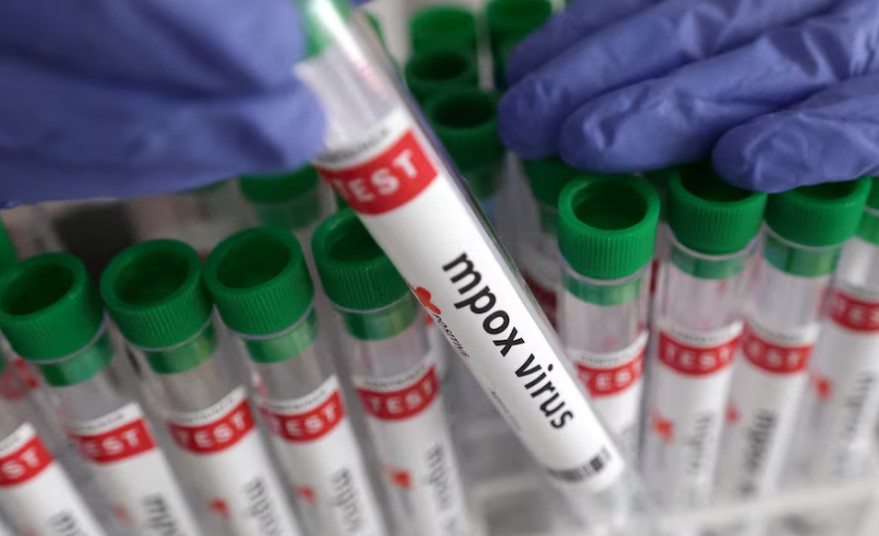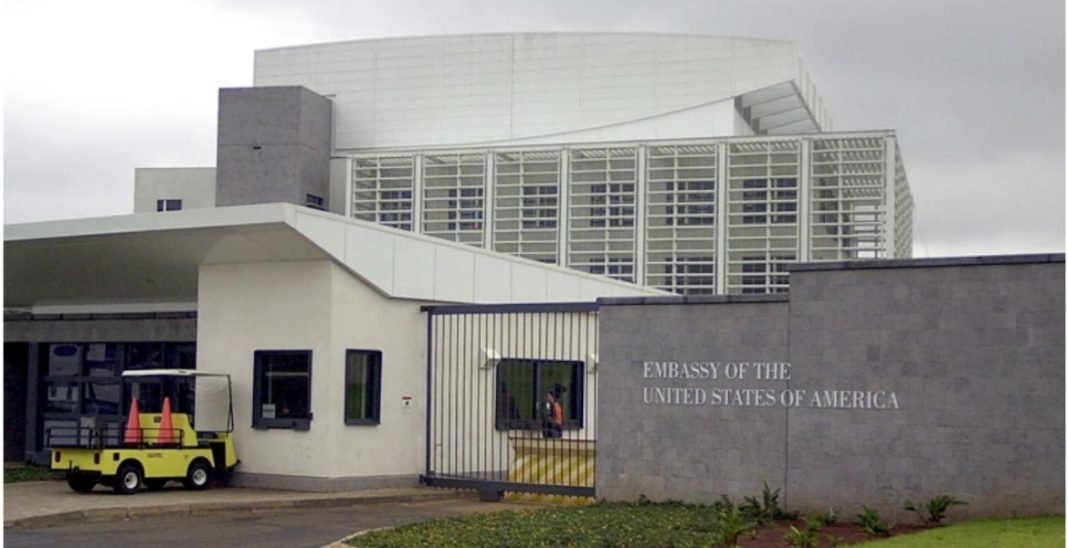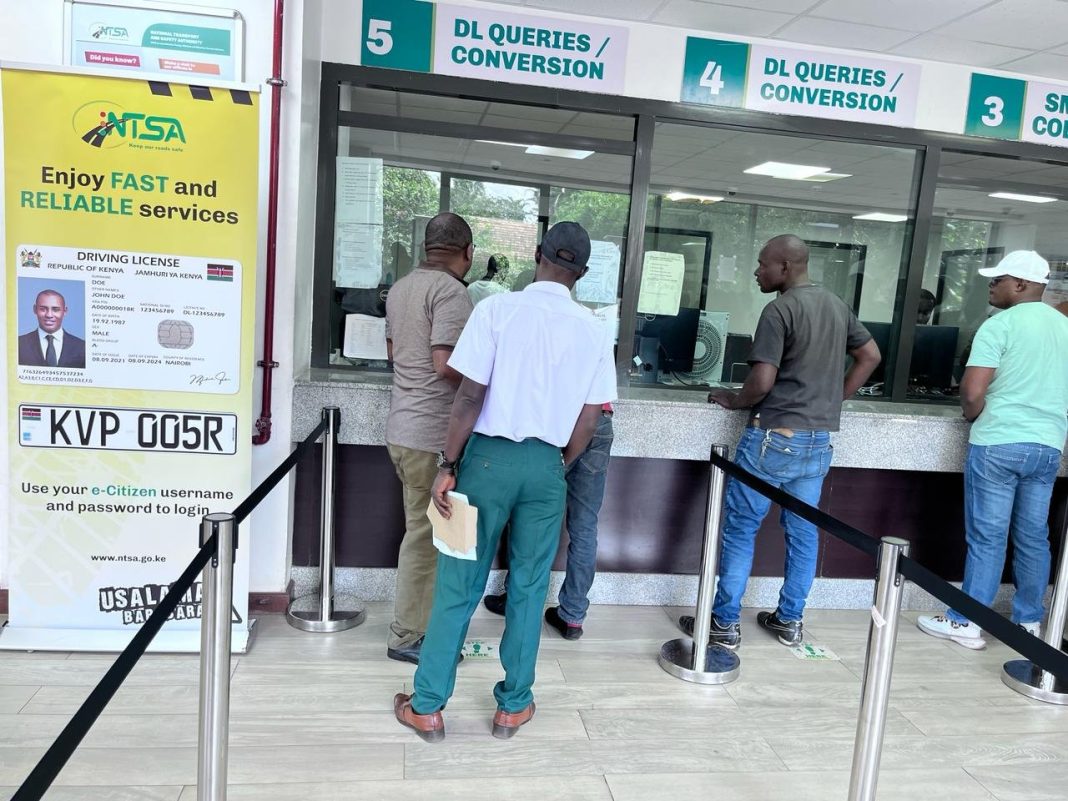Kenya has confirmed 314 cases of mpox (monkeypox) since the outbreak began in July 2024, with the Ministry of Health intensifying containment efforts across 22 counties.
Speaking during a health briefing, Cabinet Secretary for Health, Aden Duale, assured the public that the government is fully committed to controlling the outbreak and protecting citizens.
Mombasa County has recorded the highest number of infections at 146, followed by Busia (63), Nakuru (21), Kilifi (19), Nairobi (17), and Makueni (13). Additional cases have been reported in Taita Taveta, Uasin Gishu, Bungoma, Kajiado, Kakamega, Kiambu, Kericho, Machakos, Migori, Kisii, Kirinyaga, Isiolo, Kitui, Narok, Baringo, and Trans-Nzoia.
In the last 24 hours, three new cases were reported in Mombasa and one in Nairobi.
Currently, 33 patients are receiving treatment in various health facilities, while 54 others are under home-based care. A total of 222 individuals have recovered. Five fatalities have been reported, translating to a case fatality rate of 1.6%.
“We appreciate the continued efforts by the public and all stakeholders in combating this outbreak and safeguarding the well-being of our nation,” said CS Duale.
So far, health officials have traced 422 contacts linked to positive cases. Of these, 392 have completed the 21-day monitoring period, while the rest are still under observation. Fifteen of the traced contacts have since tested positive.
Screening efforts at points of entry across the country have intensified, with over 4.7 million travellers screened, leading to the identification and testing of suspected cases.
Out of 905 samples tested by the National Public Health Laboratories and partner facilities, 314 turned out positive—representing a positivity rate of 34.6%.
In collaboration with county governments and partner organizations, the Ministry of Health has scaled up surveillance activities and deployed Rapid Response Teams nationwide. These teams are tasked with tracing contacts, investigating cases, offering treatment, and providing psychosocial support to affected families.
Additionally, public awareness campaigns are ongoing in high-risk counties to promote hygiene, reduce stigma, and encourage early detection.
More than two million individuals have been sensitised at various points of entry.
The ministry continues to urge Kenyans to:
Avoid close contact with suspected or confirmed cases.
Wear gloves and face masks when attending to sick individuals.
Maintain high levels of personal hygiene.
Avoid sharing personal items.
Practice safe sex and report symptoms early.
Self-isolate and seek immediate care if infected.







online betting with paypal winnersbet
References:
centerdb.makorang.com
paypal casinos online that accept
References:
https://www.89u89.com/index.php?page=user&action=pub_profile&id=385128&item_type=active&per_page=16
This offer is spread over your first few deposits, making it
easier to enjoy more games with extra chances to win. If you’re new to the platform, you’re in for a treat with one of the most generous welcome packages available to Aussie players.
So, if you’re ready to play like royalty and discover one of the most talked-about online casinos in Australia, stay with us – you’re in for a treat.
Take advantage of exclusive cruise-planning perks like discounted rates for family and friends, special offers with land-based casinos and even an annual complimentary cruise.
Members receive exclusive offers, and access to special events and promotions.
However, certain restrictions apply, ensuring compliance with international gambling regulations.
This powerhouse collaboration ensures high-quality graphics,
seamless gameplay, and innovative bonus features designed to keep even the most seasoned gamers engaged.
The diversity of games is a hallmark of Royal Reels online.
With licensing from the Philippines Authority, your gameplay
is not only legal but bound by robust standards ensuring fairness and security.
The bonus is split across your first few deposits,
giving you more chances to explore the site and boost your playtime.
Yes, new Aussie players can claim a generous welcome package
that includes up to AUD $5,000 plus 100 free spins.
References:
https://blackcoin.co/paris-las-vegas-hotel-casino-adults-only/
The responsive design maintains complete functionality across
smartphones and tablets, allowing seamless bonus claiming and tracking.
All promotional offers remain fully accessible through mobile devices, ensuring you
never miss opportunities regardless of how you choose to access the platform.
Always verify current terms before completing your deposit
to ensure you receive all entitled promotional benefits.
Regular competitive events add an extra dimension to standard gameplay, featuring
guaranteed prize distributions and leaderboard challenges across various game categories.
Understanding these requirements helps you plan your gaming strategy
effectively and set realistic expectations for
your bonus funds. This comprehensive overview explores
every promotional aspect available at RocketPlay, helping you
understand how to leverage these offers effectively.
Every aspect of our service acknowledges the distinct needs of players,
from banking preferences to game selection,
ensuring a localized experience that feels familiar and comfortable.
The foundation of exceptional gaming experiences lies in partnerships with
premier casino software providers who deliver innovative and entertaining
content. On our platform you will find different types of slots and games, which have high RTP
and are produced by the most popular providers.
Every aspect of our security infrastructure is regularly audited by independent third parties, ensuring players can trust their personal
information and funds remain completely protected at all times.
Our commitment to fair play ensures all games operate with certified
random number generators, providing genuine winning opportunities.
The multilingual support capability ensures players receive assistance in their preferred language, with specialized knowledge of Canadian banking methods and regional gaming preferences.
The total weekly bonuses amount could be higher (the best casinos offer at least $5000 worth of ongoing
bonuses). Join today to discover why so many players trust RocketPlay for their online casino
entertainment. Low deposit casinos are perfect for testing new titles, discovering your favorite games, and managing your budget responsibly.
As a premier online casino in Canada, we understand the unique preferences of players.
For players seeking unique entertainment, our specialty games section includes
diverse options beyond traditional casino games. Our online slots
collection spans thousands of titles, from classic three-reel
games to modern video slots with multiple paylines and bonus features.
Wie üblich bei Interwetten Casino ist der Bonus Schrittweise freizuspielen. Dazu ist der kumulierte Gewinn aus den Freispielen ein einziges Mal im Casino umzusetzen. Anschließend haben Sie
weitere 7 Tage Zeit, um den Bonus freizuspielen. Um die Freispiele zu erhalten, müssen Sie diese innerhalb
von 7 Tagen ab Registrierung beim Kundenservice einfordern.
Regelmäßige Updates bringen Neuerscheinungen und saisonale Exklusivangebote.
Sie können nach Anbieter, Thema oder Spieltyp suchen,
um schnell zu finden, wonach Sie suchen. Mit benutzerfreundlichen Filtern machen wir es Ihnen leicht,
sich in unserer großen Lobby zurechtzufinden. Es ist einfach,
die richtige Passform für jeden Spielstil oder jedes Budget zu finden, da die minimalen und maximalen Tische
deutlich dargestellt sind.
References:
https://online-spielhallen.de/casino-bregenz-login-ihr-zugang-zum-glucksspiel-erlebnis/
Great blog here! Alsso your web site loads up very fast!
What web host are you using? Can I get your affiliate lik to your host?
I wish my web site loaded up as fast aas yours lol https://yv6bg.mssg.me/
y9kkf4
ekya9w
np25dg
341gn0